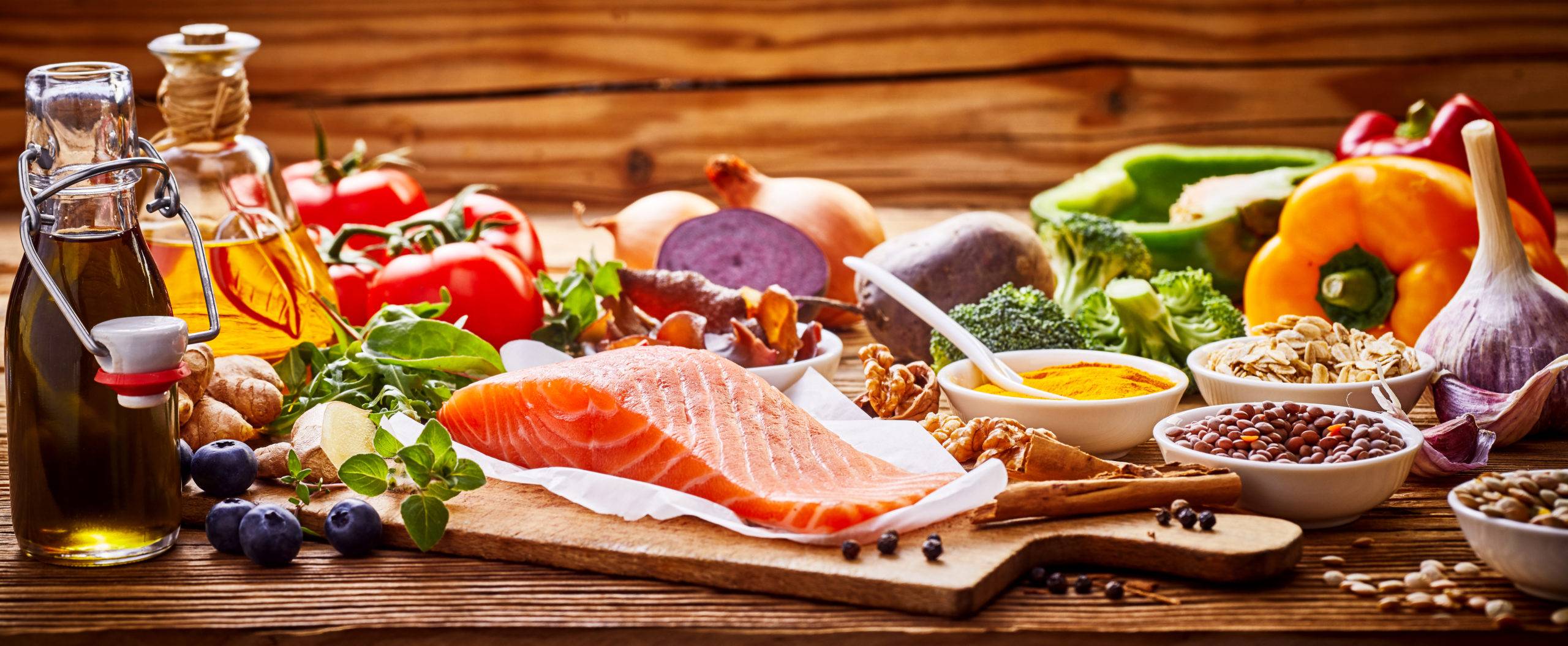Have you ever imagined what the grocery store would look like if only foods grown within a 500 mile radius, made with normal kitchen equipment, were sold there? What if refined sugar, artificial flavors, and refined vegetable oils were illegal?
As a health care provider for over 15 years, when I shop for food I’m always conscious of two main perameters: 1. is it natural or processed, or in other words, could this item be made in a kitchen or grown in the ground without a ton of technology, and 2. is it in season now in my region? Of course, exceptions are going to happen, but when I keep these criteria in mind, I am already bound to make healthier choices.
Why does eating low-tech and in season mean healthy? Let’s take a look!!

Eating with the Seasons, and with your internal environment
In Traditional East Asian Medicine (TEAM), people are always considered to be a part of nature, not separate from it. This includes diet and nutrition. Food is considered the first medicine, and only after diet has been corrected should other medicines be considered. Choosing foods based on their special qualities and properties, the TEAM practitioner can prescribe certain foods to complement the patient, while advising against foods that are contraindicated for their condition.
In cold weather, foods should be warming, like soup and stews, and salads and fruit should be infrequent. In summer, eating light, fresh and seasonal produce will encourage a deeper connection with food, and greater nutrition.
Going Local – The biggest bang for your buck
Thanks to world wide distribution channels and global food companies, we can have almost any fruit or vegetable, from all over the world, year round. This is a wonderful asset, yet, if we compare the nutritional content of what we can grow here to foods that were harvested months ago and trucked or shipped thousands of miles? The quality of the food, and it’s vitamin and mineral content, are greatly diminished. Pesticides and other chemicals may need to be used in larger quantities to yield the types of harvests to feed the huge demands. Strawberries are a great example – I recently read an article about all the special conditions that year round red berries in every store across the nation require. It’s quite eye opening and provides incentive to change buying habits.
Big Food vs You
People are busy. We work too much, our activities take up the rest of our time. So where’s the time to cook from scratch? And why should we? Especially where I live in the suburbs, and in many communities, grocery stores and restaurants abound to satisy any craving, meet any budget, and to fit into any busy lifestyle. But when you step back and take a look from afar, we see how health benefits are sacrificed for profits. Insidious practices, like increasing fat, salt, sugar, and flavorings to make foods “hyperpalatable” and arguably addictive, are commonplace. About 10 companies control the world’s food supply. They dictate what is available and thus our choices.
When we can see the marketing and corporate decisions aimed at profits behind the products, it can open our eyes. We don’t have to sacrifice quality for convenience. Read labels to make informed choices. Keep it simple. Protein, veggies, and a carbohydrate are the main components to a nourishing meal.
Avoid these three things for better health
The name of the health game is anti-inflammatory, since all chronic disease is a form of inflammation. Keep these off your plate to make the biggest impact.
Bad Oils – certain oils produce free radicals that damage our tissues. This article has a good summary of oils that are safe to cook with and oils that are damaging.
Processed Meats – I’m talking about deli meats and “meat products” like boloney, and sliced meats full of preservatives. See the link below for information about how it’s linked to cancer and heart disease.
SUGAR! – of course, the most fun thing, but also the most inflammatory. This should really be limited in its refined forms. Go for unrefined alternatives like evaporated cane juice (also called sucanat), raw local honey, and natural maple syrup. Or skip the sweeteners and retrain your tastebuds to enjoy whole fruits! Stevia and Monfruit extract are natural sweeteners only required by the drop! The internet abounds with naturally sweetened treats recipes, and if you are savvy you can make better choices at the store for that occasional treat!
So next time you are tempted to buy tomatoes in winter, or donuts in the drive thru, think about your body and ask if it’s worth it. And as a gardener, think – can I grow that? If not, maybe put it back on the shelf!
Sources:
https://www.ncbi.nlm.nih.gov/pmc/articles/PMC5296687/
https://www.usatoday.com/story/money/business/2014/08/16/companies-that-control-the-worlds-food/14056133/
https://www.consumerreports.org/deli-meats/danger-at-the-deli-cold-cuts-increased-risk-cancer-heart-disease/

